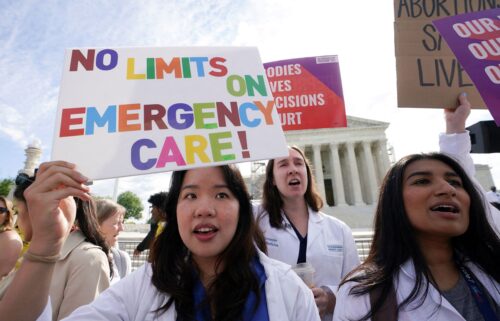‘Completely ignored’: Why health problems caused by childbirth are neglected
By Jessie Gretener, CNN
(CNN) — Expansive new research says that more than a third of women globally experience lasting health problems caused by childbirth, saying the conditions are often “neglected” and “ignored.”
The study, published Wednesday in The Lancet Global Health, is a call to action to better the quality of life for women in the months and years after birth.
The study, which examined health problems arising or continuing six weeks after childbirth, says that many complications after birth are “rarely acknowledged.”
The most common complication is pain during sex, which affects more than a third (35%) of postpartum women, the study says. This can be a significant stress for couples trying to relearn intimacy after changing their relationship dynamic with the addition of a child.
Other common complications include low back pain (32%), anal incontinence (19%), urinary incontinence (8-31%), anxiety (9-24%), depression (11-17%), perineal pain (11%) and fear of childbirth (6-15%). Just over a tenth of women also experienced secondary infertility, the inability to get pregnant after a complication-free first pregnancy.
The researchers – from the World Health Organization and institutions around the world – say many of these conditions can be difficult for women and health care providers, stemming from cultural and political stigmas.
Dr. Pascale Allotey, director of WHO’s Department of Sexual and Reproductive Health and Research, said in a statement that these conditions cause “considerable suffering” in the day-to-day life of women long after birth.
Allotey, who was not involved in the study, said that women who have medium- to long-term health complications from childbirth are “largely underappreciated, underrecognized, and underreported.”
“Throughout their lives, and beyond motherhood, women need access to a range of services from health-care providers who listen to their concerns and meet their needs – so they not only survive childbirth but can enjoy good health and quality of life,” Allotey urged.
The findings of this study play a part in a bigger narrative, with women’s health often overlooked. According to WHO, women face greater barriers than men when it comes to accessing health information and services. These barriers include lack of awareness of the specific health needs of women, discriminatory attitudes within communities and by health care providers, and lack of access to decision-making power.
The report is one of several papers in a special series by The Lancet, backed by the United Nations’ Special Programme on Human Reproduction, WHO and the US Agency for International Development. The series highlights the need to broaden maternal health care, including before and after pregnancy.
While the new report celebrates the collective efforts that have shrunk the global maternal mortality ratio (MMR) to its lowest level in history, the authors recommend looking beyond that to other health care complications.
“Many of the medium-term and long-term (and often chronic) complications, which emerge after 6 weeks following childbirth, are comparatively less visible, or completely ignored,” the report says.
The authors also note that health providers can be “ill-equipped to address these chronic conditions” when some women have birth-related complications after their access to postpartum care has ended.
The report points to a “scarcity of data” as a critical hurdle, saying that many common complications are “not prioritised from a public health perspective.”
These data gaps are particularly significant for low- and middle-income countries, where the “scale of the burden” is not fully available.
The authors conclude the call to action for greater recognition, increased funding and access to information, arguing that “neglect” toward these health issues results in “low visibility, financing, and collective effort.”
“Countries should prioritise the development and implementation of health policies that address the full range of health conditions that tend to emerge long after the time of birth,” the authors say.
The-CNN-Wire
™ & © 2023 Cable News Network, Inc., a Warner Bros. Discovery Company. All rights reserved.


